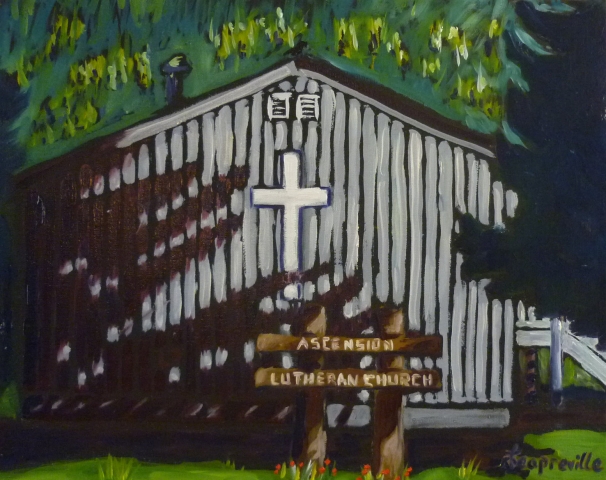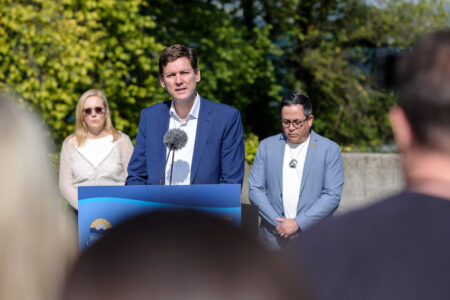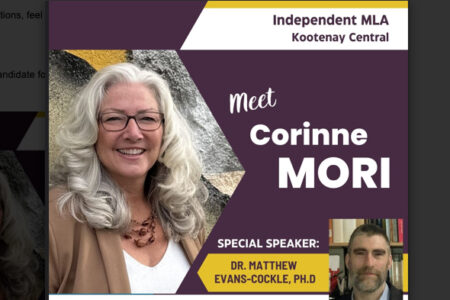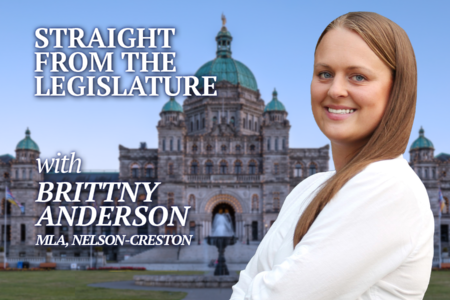Nelson Council continues to iron out the tax exemption wrinkles, churches spared new taxes for now
Churches were spared when Nelson City Council amended a standing Property Tax Exemption bylaw to exclude every non-profit who would be paying less than $1,000 in property taxes this tax season.
Councilor Deb Kozak said the city tax exemption bylaw is a work in progress. When the original was written, taxation, governments and even the number of non-profit organizations were different then they are today.
Five years ago council began re-examining the bylaw to make it both accountable and fair.
“It used to be passed in the blink of an eye,” said Kozak. “And some groups would get an exemption every year.”
To be more accountable, council decided to set a cap of one per cent, or about $74,000, of the total property taxes that can be collected in one year. Even by including the lower tax exemption applications, council kept it to 1.2 per cent or $88,600 this year.
The city collects about $7.5 million in property taxes annually.
“There’s nothing wrong with making sure council is being good stewards of tax collecting,” said Colin McClure, chief financial officer for the City of Nelson.
“Council wanted to try and spread the dollars out. If you can’t give it to everybody, then you can’t pick and choose.”
“We decided to take another year to refine the logic around this (bylaw) and felt it needed more consideration,” said Kozak.
The key, Kozak said is a balance between helping the non-profits in the good work they do for the community and in keeping the ever stressed municipal coffers full.
There are increased pressures on local government as the provincial government continues to offload their financial woes onto the municipalities, said Kozak.
“We’re getting squeezed more all the time,” said Kozak, adding their main source of income is through property taxes and not through the highly-competitive granting process.
“With permissive tax exemption we have to be careful what we do. Council totally recognizes the work the community non-profits do and we need to support them as much as we can. Hopefully we can make it work.”
Churches are a bit different than other non-profits in that there is a federal exemption given to them. However, while the municipality cannot tax the property the church sits on, it can tax the property around the church like the yard and parking lot.
And that is where the controversy came in. When council decided any application for tax exemption that was below $1,000 would be excluded this year, most of the churches fell under that list.
However, as Kozak points out, council didn’t consider the other taxes those churches were facing from things like the Regional District Central Kootenay (RDCK).
So what looked like only a few hundred dollars in taxes to the city, actually was much more once the RDCK also taxed the non-profit.
“There was a compounding effect with the taxes, if they paid city tax then they paid all of them,” said McClure.
Churches breathe a collective sigh of relief
The Ascension Lutheran Church in Rosemont was one of the many churches that would have had to pay out several hundred dollars in city property taxes if city council hadn’t changed the plan.
Reverend Nolan Gingrich said while their amount wouldn’t have been much, it still makes a dent in the collection plate for a congregation of 100.
“It’s not a large chunk, but for some of the elders in the congregation it would amount to two or three total offerings for the year, which doesn’t fulfill what that money was intended for,” said Gingrich.
“It’s expensive to maintain a facility and provide worship and community services.”
Besides covering the expenses of operating a building, the Ascension Lutheran Church makes donations to the Nelson Food Cupboard Society and hosts a monthly soup kitchen for the community.
They are also in the process of replacing their church with a more accessible facility that would contribute that much more to the community, said Gingrich.
“All these things are there to meet the needs not being met and taxes can’t always meet those needs,” said Gingrich, who is pleased the city changed their mind and has now given all the churches a tax break.
The amended tax exemption bylaw will have a third reading in the city council chambers on Wednesday, Oct. 31 at 11 a.m.
The bylaw will be reviewed again this time next year and non-profits will have to apply again for tax exemption.
The application process can be a bit daunting, so city council will be hosting workshops on how to apply and in refining the policy in Spring 2013.

























